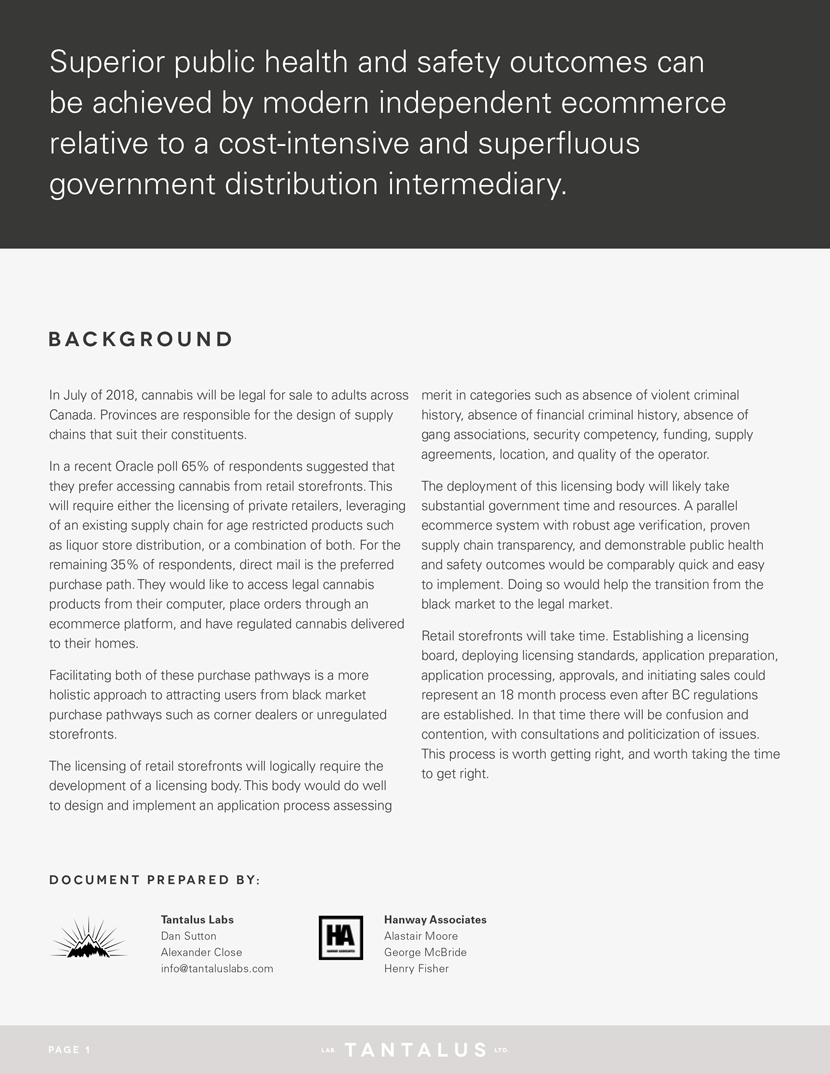Submission to BC Government's Provincial Cannabis Secretariat
On October 24th 2017, Hanway Associates and Tantalus Labs submitted a document to British Columbia's Provincial Cannabis Secretariat.
As the provincial government considered the important decisions they needed to make before cannabis legalisation in Canada, they asked to hear from local governments, Indigenous governments and organisations, individual British Columbians, and the broad range of other stakeholders that would be affected by cannabis legalisation.
We believe that the inclusion of regulated but independent ecommerce platforms for producers and retailers essential to the success of public health and safety outcomes, industry growth, and facilitation of producers of all sizes.
Background
In July of 2018, cannabis will be legal for sale to adults across Canada. Provinces are responsible for the design of supply chains that suit their constituents.
In a recent Oracle poll 65% of respondents suggested that they prefer accessing cannabis from retail storefronts. This will require either the licensing of private retailers, leveraging of an existing supply chain for age restricted products such as liquor store distribution, or a combination of both. For the remaining 35% of respondents, direct mail is the preferred purchase path. They would like to access legal cannabis products from their computer, place orders through an ecommerce platform, and have regulated cannabis delivered to their homes.
Facilitating both of these purchase pathways is a more holistic approach to attracting users from black market purchase pathways such as corner dealers or unregulated storefronts.
The licensing of retail storefronts will logically require the development of a licensing body. This body would do well to design and implement an application process assessing merit in categories such as absence of violent criminal history, absence of financial criminal history, absence of gang associations, security competency, funding, supply agreements, location, and quality of the operator.
The deployment of this licensing body will likely take substantial government time and resources. A parallel ecommerce system with robust age verification, proven supply chain transparency, and demonstrable public health and safety outcomes would be comparably quick and easy to implement. Doing so would help the transition from the black market to the legal market.
Retail storefronts will take time. Establishing a licensing board, deploying licensing standards, application preparation, application processing, approvals, and initiating sales could represent an 18 month process even after BC regulations are established. In that time there will be confusion and contention, with consultations and politicisation of issues. This process is worth getting right, and worth taking the time to get right.
You can read the full submission and its recommendations here.

